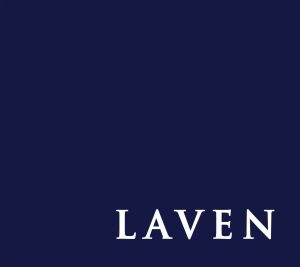Welcome to the fifteenth edition of the monthly Laven Partners’ Monitoring Update on the proposed AIFM Directive.
We never thought when we started updating you on the directive that we would reach a fifteenth issue! Such is the reliability of our European political system with which we must live…
The new Directive seeking to regulate hedge funds is charging ahead to become law. Laven Partners provides a monthly update on the development and status of this Directive. In the true Laven Partners style, we also look at any interesting comments made by regulators and leading industry players in relation to the Directive. We have now decided to include brief commentary on related regulatory developments as the EU goes legislation mad!
Our aim is to involve the financial community and notably to aggregate the representation of investors as we believe the Directive severely reduces their access to investment opportunities. Please register your interest and comments by emailing us at [email protected]. Please feel free to forward our monitoring update to anyone who may be interested.
The AIFM Directive
Despite its challenging workload this summer, on 27 September the Belgian Presidency published a new compromise proposal on the AIFM Directive. The compromise is however still to be reviewed by the European Council. Despite this long awaited development, the Belgian compromise has failed to tackle some of the most controversial issues of the Directive, in particular the provisions relating to the marketing of third country funds. This issue was left by the Belgians to be discussed further by the Trialogue.
There are 5 significant points in the Belgian proposal:
- The ambiguity surrounding the question of depositaries’ liability – stemming from the Spanish compromise – has been amended with a clearer definition, but the depositary’s strict liability has not been removed. According to the Belgian version, the depositary will be liable in case of negligence as well as intentional failure to properly perform its obligations and this liability shall not be affected by delegation;
- The compromise would, according to HFM Week, legalise passive marketing whereby investors are allowed to invest into third country funds as long as the investment is based on their own initiative, i.e. there has been no active marketing or promotion by the fund’s manager;
- The new European regulator, ESMA, has been given more power notably in taking over all of the responsibilities originally held by the Committee of European Securities Regulators (CESR);
- With regards to the marketing third country funds in the EU, the Belgian proposal has not addressed this issue and merely states that this will be discussed during the Trialogue. However HFM Week reported that the private placement rules may remain in force for the next five years (the “transitional period”) after which they would be replaced by an EU passport.
- Finally, with regards to the issue of an EU passport for third country managers, the Belgians propose this to be embedded within one specific Member State, which will become the fund’s “home” Member State or literally a base for future marketing activities. In practice this would mean that when marketing in other Member States the third country fund manager would be prudentially supervised by the home Member State.
The Belgian proposal has started a new wave of discussions within the industry and it remains to be seen how the new version will be perceived by the European Council. Michel Barnier, the European Commissioner for Internal Market and Services, told the HFM Week that discussions about the Directive were in the “last strait”. Despite the legislators’ strong belief in being able to meet the September deadline, Reuters France has recently reported that Member States have been unable to reach an agreement over the Belgian proposal as some issues were not covered. Further discussions about the final text of the Directive will take place during the Trilogue meeting on 15 September. The final Parliamentary vote on the Directive has therefore been delayed until October.
The Directive has been shaping the industry for several months now although the final version is still unknown. By significantly reducing the freedom and flexibility previously awarded to hedge funds, the draft Directive has motivated several fund managers to take steps towards preparing for the regulatory consequences of the Directive. Lately, we have seen an increased interest in UCITS III structures and some see this as an attempt by managers to gain access to EU clients whilst avoiding the burden/uncertainty of the Directive. An increased conversion of traditional absolute return hedge fund strategies into UCITS vehicles may lead to new, more complex NewCITS vehicles. The regulatory changes in the EU together with changes in investors’ appetite may thus lead to a transformation of the industry.
With the last minute pressure taken off EU legislators and lobby groups pushing their way, we may have to wait for at least another month to find out more about the final version of the Directive. We hope the extended negotiations will lead to a more realistic Directive, one that brings regulatory opportunities to improve the industry’s standards rather than one that creates unpractical regulatory and cost burdens.
EU regulatory body moving to London
On 2 September the EU approved the set up of the three new EU regulatory superpowers to be based in London, Paris and Frankfurt. The new bodies will oversee banks, insurance companies and securities market trading and will even have authority over the regulation and risk management of financial services providers. The European Systemic Risk Council will also be established to monitor possible financial risks and possible hazards to financial stability.
The aim behind these bodies is to increase the strength of financial oversight in the EU as well as to promote larger harmonisation in regulatory approaches. The daily supervision will still remain in the hands of national regulators and the EU bodies will only directly supervise credit rating agencies in the EU. Nevertheless some see the creation of the supervisory bodies as an attempt by the EU to regulate the City, thus limiting its position as a global financial centre.
The agreement on the EU regulatory bodies is still to be vetted upon by the European Parliament’s plenary session, presumably on 22 September. It has however been reported that they will vote in the affirmative – as Michel Barnier told the Financial Times the“political consensus on the creation of a European financial supervisory framework” has been reached. If the proposal passes the vote, the supervisory bodies would be established as of January 2011.
Laven Partners is a global leader in regulatory compliance, providing practical solutions for financial institutions. Please do not hesitate to contact us if you have any questions with regards to the new Directive and how it will affect your business.




